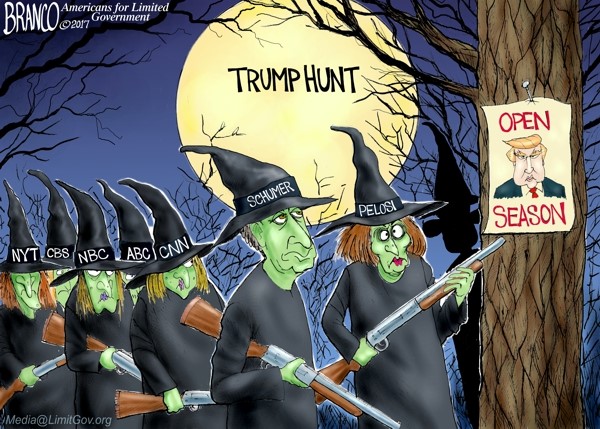A U.S. Navy fighter shot down a Syrian warplane over the skies of Syria on June 18 after it bombed U.S.-backed forces there fighting Islamic State, marking an escalation of U.S. involvement in the civil war there.
Russia, which also has forces in Syria backing the government there, has suspended any cooperation with the U.S. military and is now vowing to shoot down any U.S. planes that operate in the airspace that it controls.
The incident followed reported U.S. calls via the deconfliction channel between the U.S. and Russia to stop bombing the U.S.-backed forces. The calls went unheeded, and the plane was shot down.
All of which calls into question just how much cooperation between the U.S. and Russia can be achieved presently in Syria if both sides cannot agree on who the right targets are on the ground. It also underscores just how dangerous it is for both sides to be operating in such close proximity when there is little clarity or agreement on the scope of operations.
This is how smaller conflicts can turn into larger ones.
As a result, the prospects for war now appear to have increased between the U.S. and Russia in Syria as both air forces continue operating in the region.
Normally, such incidents between the two nuclear superpowers could be resolved diplomatically, but in the current climate, who knows? Right now, things are escalating.
And thanks to the witch hunt in Washington, D.C. by federal law enforcement and intelligence agencies of all things Russia, it is now becoming much more difficult politically for the Trump administration to ratchet down tensions in the region, as he promised to do on the 2016 campaign trail.
Russia has been repeatedly accused of hacking the Democratic National Committee and John Podesta emails and dumping them onto Wikileaks to help President Donald Trump win the election in 2016 — and that the Trump campaign assisted in those efforts. But after a year, where is the evidence to support these claims?
Even U.S. Rep. Adam Schiff (D-Calif.), Ranking Member of the House Select Committee on Intelligence is watering down expectations of irrefutable evidence of collusion emerging from Congress’ continued investigations.
“The allegation of course is that the Russians and the hacking and dumping of documents in the election had essentially relationships with Trump campaign people and coordinated those efforts,” Schiff told ABC News’ Martha Raddatz on June 18.
“But,” Schiff added later in the exchange, “I’m not prepared to say there’s proof you could take to a jury.” Yet, Schiff said the investigation was justified and ought to continue.
Here, Schiff appears to be hedging, preparing a defense that the initial investigation was justified — even if it turns up nothing.
That, after a year of federal investigations by law enforcement and intelligence agencies. Schiff — who has looked at these matters extensively including receiving classified intelligence briefings from those agencies — apparently still cannot find proof of a crime that would lead to a conviction of the original allegations of Russian hacking and Trump campaign collusion.
Schiff’s statements come after a torrent of members of the House and Senate intelligence committees have affirmed they have not seen evidence of collusion.
They come after former FBI Director James Comey admitted that Trump was never the target of his investigation while he was still at the FBI.
In the meantime, President Donald Trump has protested his innocence from day one, which is no crime, although with Special Counsel Robert Mueller, who knows?
Perhaps in this bizarre climate, the President publicly and privately defending himself against allegations of treason will now be viewed as somehow inhibiting the investigation. That was how Martha Stewart and Scooter Libby were brought down, not on insider trading and leaking classified information charges, respectively, but in telling investigators they had done nothing wrong. Later those statements were mangled into imagined process crimes of obstruction of investigations into the crimes that couldn’t be proven.
In the meantime, geopolitically, U.S.-Russian relations have deteriorated from bad to worse throughout this investigation.
After vaguely accusing Russia of attempting to influence the election in October 2016 and again in January 2017, the outgoing Obama administration levied new sanctions on Russia. The civil war in Ukraine has remained a point of contention between the U.S. and Russia, as has Russia’s continued support for the Bashar al-Assad regime in Syria. In April, President Trump ordered air strikes on the al-Shayrat air base in response to an alleged chemical weapons attack by the government.
Now once again we are at a moment of escalation in Syria. To keep things from spinning out of control, the deconfliction line between the two countries’ militaries not only needs to be kept open to prevent any further incidents — but abided by when it is utilized. Otherwise, the whole enterprise is called into question.
A wider war is becoming an increasing risk. At senior levels, a dialogue is desperately needed between Washington, D.C. and Moscow to step back from the brink.
But with the incessant allegations against Trump, could the President even attempt to now initiate a backchannel with Russia to calm tensions? Or would the contents of those communications be leaked from investigators? A proposed back channel during the transition supposedly by senior advisor Jared Kushner was outed in May, undermining potential efforts to broker peace and making it harder to stop the escalation.
Ultimately, this witch hunt is undermining the ability of the President exercise his Article II powers to conduct foreign relations, and it is making the world less safe. For all our sakes, we had better hope it comes to an end sooner rather than later — before it is too late.
Robert Romano is the senior editor of Americans for Limited Government.







